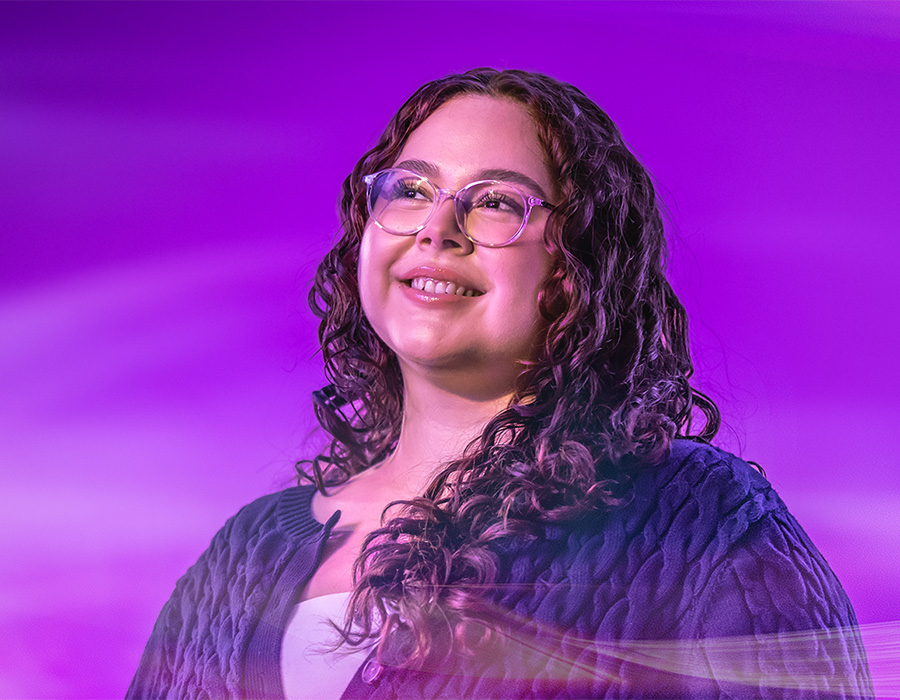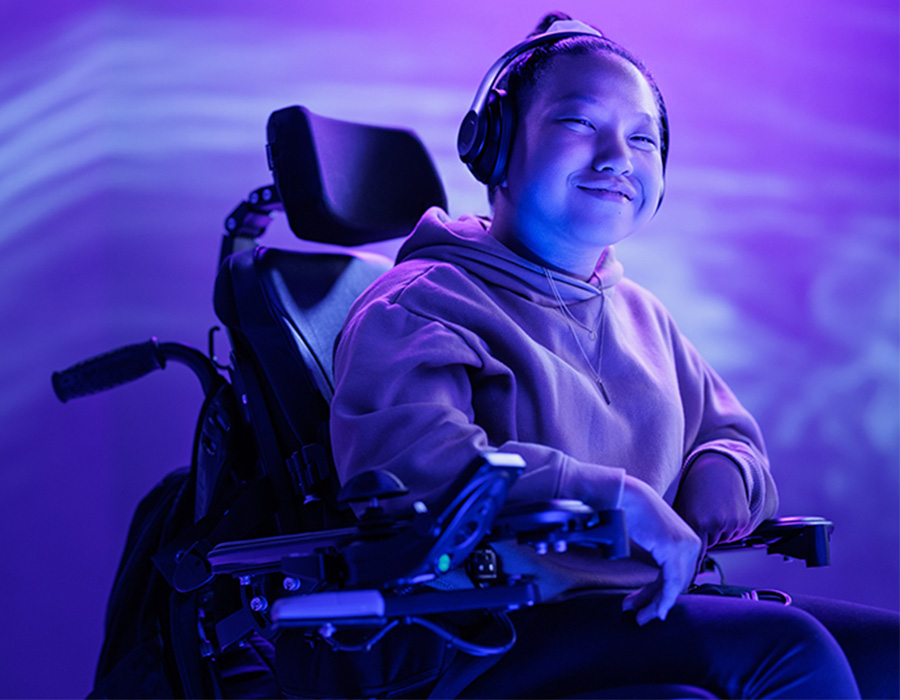Online Master of Science in Education in Special Education
Empowering Educators, Transforming Lives.
Exceptional individuals require highly skilled educators, specialists, and support staff that can plan and facilitate special education curricula in a safe and engaging environment. The Online MSE in Special Education program is designed to provide an avenue for students with bachelor’s degrees to expand upon their education with the option of four emphases to customize their learning experience.
Why UW-Whitewater Online?
- Top-notch, doctoral instructors
- Flexible and convenient for your schedule
- 98% employment rate for college graduates
Specialized
Enhance your career and expand your knowledge.
Fully Online
No requirements to come to campus.
Meets Wisconsin DPI code 5008
Master’s degree required for licensure.
Online Master of Science in Education in Special Education

The MSE in Special Education is a 36-credit program. This program can be started in the spring, summer or fall terms, and at a pace that works best for you. Full-time students can finish in as little as three semesters.
For a comprehensive overview of the program structure and required courses, please refer to the Graduate Catalog.

To qualify for admission to the online master’s program, you must meet graduate admission criteria.
Deadlines vary by term and are subject to change without notice. Accurate and up-to-date admission deadlines can be found on the graduate admission deadlines website.
Additional requirements for admission to the Special Education program:
- Upload a personal statement (2-3 pages) describing the reason behind your decision to pursue this degree, your short- and long-term career goals, and the value you believe you will add to the learning experience of your fellow students.
All requirements can be submitted during the application process.
International students must meet additional criteria and will be evaluated on a case-by-case basis. Contact us for information and assistance.

This program at UW-Whitewater is a superior value, with tuition starting at $614.60 USD per credit as a Wisconsin resident and $1,229.05 USD per credit as a non-resident for the 2025-26 academic year. Visit the Tuition and Fees webpage for complete information.
Course materials
Graduate students can purchase textbooks and other instructional materials through the University Bookstore or elsewhere online. Students should verify what materials are needed with their instructor.
Financial aid
Students completing a degree program may be eligible for financial aid in the form of grants, loans, scholarships, or employment. All of these make up a “Financial Aid Package” and may be offered singly or in various combinations. Since funds are limited, priority for aid is based on financial need and how promptly applications are filed. To find out if you qualify, or if you have other financial aid questions, contact the financial aid staff person assigned to you or try uwwfao@uww.edu or 262-472-1130.

Like to learn more about degree options through UW-Whitewater School of Graduate Studies? There are a few ways you can get the information you need.
Visit our information sessions website to select a virtual information session related to the program you are interested in.
You can also fill out a request for information to connect with an advisor who can discuss your goals and help guide you to the right program to pursue your dreams.


Interested in taking a tour of UW-Whitewater campus? You can visit in person or virtually.
Online MSE in Special Education - Emphases

The MSE in Special Education with an emphasis in Adaptive Education to Cross Categorical is designed for UWW alumni with BSE and Adaptive Education to complete their cross categorical coursework at the graduate level.
For a comprehensive overview of the program structure and required courses, please refer to the Graduate Catalog.

The Applied Behavior Analysis emphasis Master's degree is designed to prepare professionals with undergraduate degrees in education or related fields to use Applied Behavior Analysis to create, coordinate and/or implement ABA-based interventions with individuals who have challenging behavior and/or disabilities. The Association for Behavior Analysis International has verified the ABA courses toward the coursework requirements for eligibility to take the Board Certified Behavior Analyst® examination. Applicants will need to meet additional requirements before they can be deemed eligible to take the examination.
For a comprehensive overview of the program structure and required courses, please refer to the Graduate Catalog.

The MSE in Special Education with an emphasis in Cross Categorical Licensure is designed for working professionals with a bachelor’s degree who seek initial licensure in special education. Individuals with current emergency licenses are also ideal candidates for this program.
For a comprehensive overview of the program structure and required courses, please refer to the Graduate Catalog.

The MSE in Special Education with an emphasis in Evidence Based Practice is designed for currently licensed teachers or professionals in related fields who seek advanced knowledge in special education.
For a comprehensive overview of the program structure and required courses, please refer to the Graduate Catalog.
Online Graduate Certificate Programs in Special Education

The online graduate certificate in Applied Behavior Analysis pairs research and experience to prepare professionals to work with individuals with special learning and behavior needs.

Students who complete this certification will learn about Assistive Technology assessment principles, software applications, and devices that can be used virtually or in-person to meet the needs of neurodivergent students. They will also learn about professional conduct, as well as the history and the law of Assistive Technology.

The online Autism Specialist graduate certificate is ideal for practitioners who want to increase their understanding of autism spectrum disorders in particular and neurodiversity in general.

The online graduate certificate in Dyslexia and Language Based Learning Disabilities prepares professionals with an understanding of the neurobiological causes of dyslexia, techniques to skillfully intervene, and proficiencies in evaluating educational needs in reading.

The online graduate certificate in Leadership and Learning Support Certificate is designed to meet the needs of school personnel in positions where they are guiding and leading teachers and service providers.

The online graduate certificate in Trauma Informed Educational Practice certificate prepares professionals with undergraduate degrees in education or related fields to provide support for districts whose students have been impacted by trauma.

The Online Transition Graduate Certificate prepares educators, independent living professionals, and transition specialists to work effectively with exceptional adolescents and young adults.







The Social Emotional Learning and Mental Health in Schools certificate is an interdisciplinary program for professionals working with children and adolescents in school-based settings with a focus on understanding the social, emotional, and behavioral characteristics and needs of youth, especially when identified mental health needs are present.